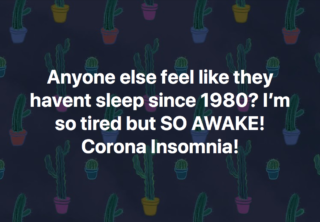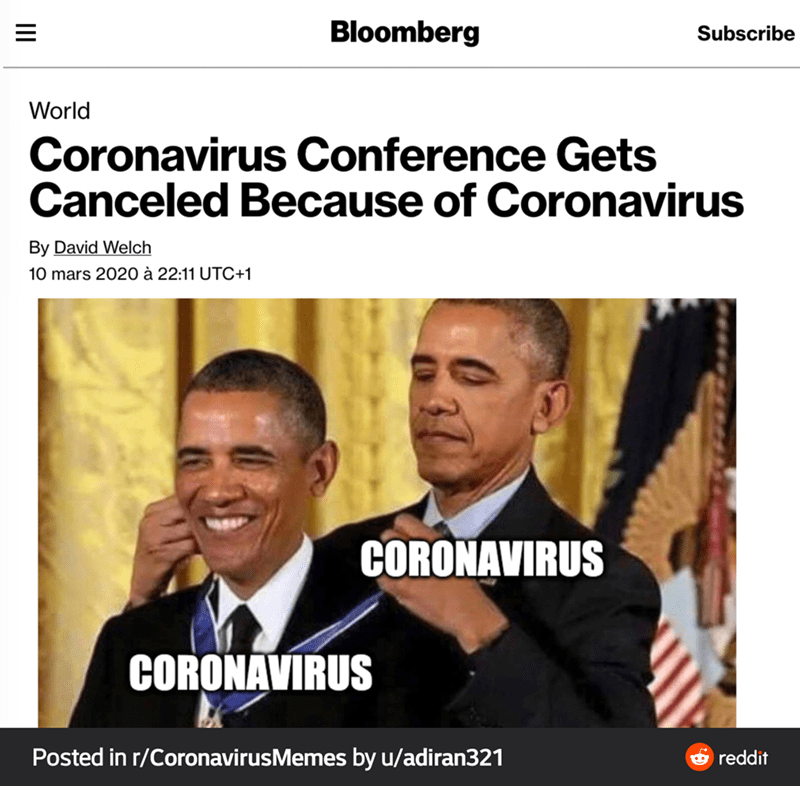The coronavirus epidemic is causing increased stress and anxiety, particularly among people with existing mental health problems, practitioners and campaigners have said.
Reactions to the crisis can include feeling overwhelmed, fearful, sad, angry and helpless, according to experts. Some people may have difficulty sleeping or concentrating. Fear of contact with others, travelling on public transport or going into public spaces may increase, and some people will have physical symptoms, such as an increased heart rate or upset stomach.
The World Health Organisation (WHO) has acknowledged that the crisis is generating stress, and has advised people to avoid watching, reading or listening to news that causes feelings of anxiety or distress.
Stephen Buckley, of the mental health charity Mind, said: “We know that the coronavirus and its impact are causing stress and worry for many people. If you already have a mental health problem, it’s possible that the worries of coronavirus may be affecting how you’re coping.”
Quarantine or self-isolation is likely to have a negative impact on mental wellbeing. A review of the psychological impact of quarantine published in the Lancet in February said: “Separation from loved ones, the loss of freedom, uncertainty over disease status, and boredom can, on occasion, create dramatic effects. Suicide has been reported, substantial anger generated, and lawsuits brought following the imposition of quarantine in previous outbreaks.
“The potential benefits of mandatory mass quarantine need to be weighed carefully against the possible psychological costs.”
According to Kathryn Kinmond speaking to The Guardian a psychotherapist in Staffordshire and a member of the British Association for Counselling and Psychotherapy, uncertainty is a key driver of coronavirus anxiety. “Coronavirus gives rise to lots of uncertainty, and this has particular resonance with people who suffer from anxiety.” Clients were “inevitably” raising concerns about the coronavirus in therapy sessions, she said.
Ashley Fulwood, of OCD UK, said the charity had received an increase in calls and emails from people with obsessive compulsive disorder who were developing a new fixation on the coronavirus.
Around a quarter of people with OCD experience compulsive cleaning, such as handwashing over a fear of contamination, according to Fulwood.
“I’m seeing for some of those people their OCD is intensifying, there is lots of avoidance going on and lots more washing than is recommended by the government – for some people their OCD is being triggered to the point where they’re washing for 20 minutes or longer,” he said.
Emily Burke, an 18-year-old student in Hertfordshire, has had OCD for four years and said she was finding the extensive media coverage and social media posts difficult to deal with.
“I’ve worked hard on it and I don’t wash my hands as much as I used to, so it’s really triggering. It’s not even like I can just turn off social media because it’s everywhere, everyone is saying: ‘Have you washed your hands?’” she said.
Coronavirus misinformation is dangerous. Think before you share.

Panic attacks may also be a response to the coronavirus outbreak, according to David Crepaz-Keay, of the Mental Health Foundation.
“One of the things that leads to panic attacks is excessive worrying for unsubstantiated reasons,” he said. “There are a relatively small number of people in this country affected by coronavirus … We shouldn’t allow that anxiety to cause us more problems than it warrants at the moment.”
Tom Kinniburgh, a 33-year-old game designer in London, started experiencing panic attacks after a number of fellow travellers began feeling ill on their return flight from a skiing trip in Val d’Isere, near northern Italy.
“I started feeling a bit ill and then I’d see news articles or reports about the virus spreading and self-isolation, and I’d get this huge wave of fear,” he said. “It felt like it made me have a cough, and then it sort of settled in my stomach and made my heart palpitate and essentially made me not be able to breathe.”
He said he started to worry he had contracted the virus, but the symptoms quickly disappeared and after talking to a friend who is a doctor, he realised he was experiencing panic attacks.
“They lasted up to 30 minutes, and they were really quite debilitating, with real shortness of breath, tingling and loss of eyesight in some regard.”
Sarah, from Gateshead, who did not want her surname published, said she had increased her dosage of anti-anxiety medication.
“Some of the things that politicians say, and also then some of the reporting of it … can create that initial coronavirus anxiety response,” she said.
Is there a cure for COVID-19 and what is the mortality rate of the virus? These are the kinds of questions people ask which you might deduce are from normal anxiety about coronavirus.
Rosie Weatherley of Mind said mental health services were making plans to provide continued treatment in the case of restrictions on movement and the closure of workplaces. Being confined to one place will also cause a lot of people to have anxiety, so this is an extension of coronavirus anxiety.
“A lot of people are reliant on interaction with therapists, but some of that can be done by phone or online. People with mental health issues need to ensure their medication supplies are sufficient for any periods of self-isolation,” she said.
Mind’s advice to people who have behavioural problems about hygiene includes avoiding repeatedly reading the same advice, asking other people not to keep reminding them to wash their hands, setting time limits on hand-washing, and using breathing exercises.
Panic Buying Is Anxiety Writ Large
It’s going into Australian suburban folklore, but it’s not just Australia, it’s global.
Coles and Woolworths attempted to curb demand by introducing buying limits, firstly just on toilet paper, then rice, then tissues and paper towels. Even with unprecedented one-per-transaction limits and heightened production, desperate shoppers still stripped shelves clean.
While retailers have been urging calm, imploring shoppers to only buy what they need and to wait for suppliers to catch up with demand, it is likely the widespread panic buying will lead to some of the best third-quarter sales figures for supermarkets in recent years.
Citi’s Australian head of research, Craig Woolford, says supermarket sales over the last week were bigger than sales for the Christmas week, one of the industry’s biggest trade periods. “Retailers take months to prepare for Christmas, and this thing has crept up on them in just a couple of days,” Woolford tells The Age and The Sydney Morning Herald.
“I don’t think I’ve ever seen anything that’s created such a buzz in the industry and such concern from consumers.”

‘Some Anxiety can be Helpful’: How to Manage your Coronavirus Anxiety
These are troubling times. With news of a new virus spreading around the world, and evolving updates of how we should all be protecting ourselves, many Australians are understandably feeling anxious. There are many unknowns about COVID-19. How quickly the virus will spread? What impact will it have on our communities? How will it affect our families?
But there are helpful actions which can assist in reducing anxiety and help manage COVID-19 fears. As an Associate Professor at UNSW based at the Black Dog Institute, Jill Newby often helps people with their anxieties and fear. Writing in the Sydney Morning Herald this is her advice:
• Some anxiety can be helpful. If you’re feeling anxious or worried, you’re not alone. Anxiety is normal, and in many cases it can be helpful. Research during past pandemics show that people who worry are more likely to do the things that help to keep the virus at bay, like frequent handwashing.
• Channel your anxiety into action: get informed, plan, and prepare. We often feel anxious when events feel out of our control, and when we think we don’t have the capacity, skills or ability to cope. Anxiety tricks us into thinking about the worst-case scenarios in vivid and frightening detail. Instead of worrying, try your best to focus on what’s under your control. Equip yourself with the facts about COVID-19 from trusted sources. Follow government advice and make a plan about what you and your family will do if you need to be in isolation, or quarantine.
• Limit or avoid unhelpful media and misinformation. Being exposed to constant, alarming, anxiety-inducing stories convinces us that there is something to panic about, and further perpetuates myths, rumours, misinformation, uncertainty and anxiety. The more we read and hear about it, the more frightening it becomes, and the less chance we have to distract ourselves and do things that can take our minds off it. Although it might be tempting to keep informed, or difficult to escape, limiting your exposure to media, news, and social media about coronavirus will help quell the panic.
• Cut down or stop the behaviours that are fuelling your anxiety. There are certain actions, when performed frequently, that can fuel anxiety about health, and germ-phobia. Focusing too much on bodily symptoms, and relying on “Dr Google”, can consume one with anxious thoughts and panic. Being aware of these behaviours, understanding how they’re making you feel, and replacing them with more helpful coping strategies can alleviate disproportionate feelings of anxiety.
Use coping strategies that have helped you in the past when you’ve felt stressed or anxious. Here are some sensible measures, that can help alleviate anxiety.
• Stay focused on the here and now, taking each day step by step.
• Be aware of negative thoughts and don’t give them too much power. Thoughts are thoughts, not necessarily facts.
• Look after your body: get enough sleep, exercise, eat well, avoid smoking, excessive alcohol and drugs. These will help protect your mental health and immune system.
• Stay connected with others, so you’re not socially isolated or lonely. It can make a huge difference when we share our worries with others, and connect with other people who are supportive.
• Help other people, be kind, and compassionate: when we help others, it helps us feel better.
If you’re feeling like you’re not coping, get professional advice, it’s ok to ask for help. If you’re feeling overwhelmed by anxiety, seek professional support. Psychological therapies can be done online, or remotely via phone or videoconferencing, and are an excellent option if you’re in self-isolation, or worried about going to a clinic.
Importantly be assured that for most people, the anxiety will be temporary, and will reduce over time, especially once the virus has been contained.
Some useful online resources include: The Black Dog Institute, This Way Up, and The Centre for Clinical Interventions.
Written by: Associate Professor Jill Newby is a clinical psychologist and MRFF Career Development Fellow based at the Black Dog Institute, UNSW Sydney. Her research focuses on understanding fears of illness, and using technology to deliver evidence-based treatments for anxiety and depression.


Recent Comments